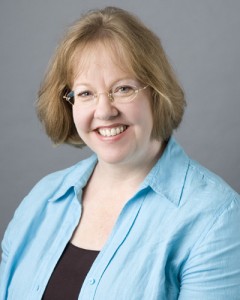Stewart participating in American History seminar
Professor of history Catherine Stewart will participate in a special American history seminar on Chicago put on by the Council of Independent Colleges and the Gilder Lehrman Institute of American History.

Stewart is one of 28 faculty from colleges around the nation selected to participate in a week-long seminar on “The Creation of the Modern American City: Chicago from 1830 to 1910.” The seminar will be held June 16–20 at the Newberry Library in Chicago. In lectures, discussion groups, and field trips, participants will exchange ideas with seminar directors Henry Binford, associate professor of history and urban affairs at Northwestern University, and Carl Smith, Franklyn Bliss Snyder Professor of English and American studies and professor of history, also at Northwestern. The seminar is funded by the Andrew W. Mellon Foundation.
The seminar will use a chronological and topical approach to explore major developments in Chicago’s formative period, when it evolved from a tiny frontier outpost to the nation’s second city and emblem of urban modernity, for better and for worse. Discussions will focus on the built environment of Chicago by examining a series of major human-made structures and institutions that both reflected the larger events and ideas that created them and have left a lasting mark on the cityscape. Participants will discuss the coming of the canal, the railroad, and Chicago’s rise to become the transportation center of the nation; the stockyards, the packinghouses, and the city’s transition from commercial center to industrial colossus; the place of the Great Fire and the skyscraper revolution in the evolution of the cityscape; the social strife and economic conflict revealed in the Haymarket bombing and the Pullman Strike; the hopes of urban reform expressed by Hull House, the World’s Columbian Exposition, and the 1909 Plan of Chicago; and the beginnings of the African American community that would later be called the “Black Metropolis.”



